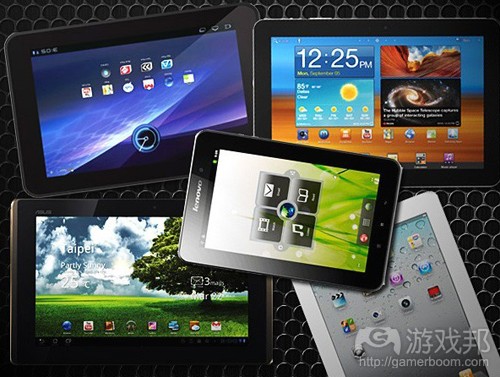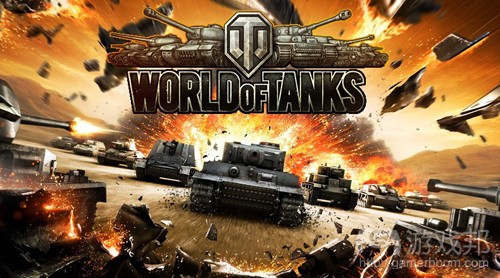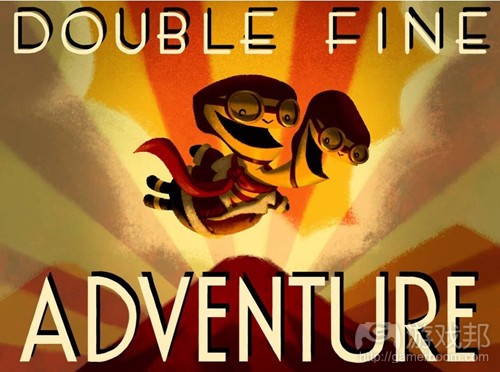列举2012年在游戏行业具有重要影响的5大赢家
今年的游戏界,赢家很多,有些公司赢利颇丰,许多公司充分利用成长中的新平台来拓宽市场。但是,单凭自身的成功还不足以跻身本文罗列的赢家行列,因为我们的附加条件是,其成功必须对行业产生重大影响。现在,我们来看看2012年的赢家有哪些。
免费模式
一种商业模式居然也能成为赢家,似乎有些奇怪。但是,毫无疑问这种游戏赢利模式简直冲击了整个游戏业。事实上,免费模式的历史可以追溯到上世纪90年代,当时,《Achaea》和《Neopets》通过免费游戏,道具收费的方法吸引了大量玩家,证明了这种模式的可行性。之后,《枫之谷》等网络游戏启发了许多在中国游戏业中盛行的免费MMORPG。而在欧美地区, Zynga、Playfish和Playdom领导免费模式成为支撑社交游戏的重要力量。
当苹果于2009年10月在iOS 3.0中引入IAP(应用内购买)后,这种商业模式就在手机平台确立地位了。此后,绝大多数出现在iOS总收益榜单上的游戏都采用免费模式。Android游戏自从于2011年引入IAP,发展势头甚至更迅猛。
今年又涌现大量免费游戏,如Riot Games的《英雄联盟》和Wargaming的《坦克世界》,这些游戏赚的钱被Wargaming的CEO Victor Kislyi称之为“不义之财”(他没有恶意)。在迅速占领社交、手机和MMO游戏后,现在,免费模式又紧紧逼向主机领域。索尼在免费MMO上成果颇丰,微软也跃跃欲试。难道游戏的未来就是免费模式?也许不是,但似乎可以说这种模式将继续主导游戏业的发展。免费模式是今年当之无愧的赢家。
平板电脑
游戏业从来就习惯于快速接纳新游戏硬件。所以,新游戏主机可以在发行的头一年卖出上百万部。销售最火的游戏主机,如Game Boy或PlayStation,已经卖出超过1亿部了(Wii的销量也接近这个数字,Xbox 360和PS3的销量各为7千万部),任天堂DS和PlayStation 2的销售成绩更可观,达到了1亿5千万部。
目前,iPad的销量已超过1亿, Android平板电脑则不少于4千万。Gartner公司预计明年iPad的销量将达到1亿,Android平板电脑将超过6千万。预计到2016年,平板电脑的总销量大约是3亿7千万。
单凭这些数字就足以说明,为什么游戏发行商对平板电脑的兴趣一点也不比对游戏平台的小。此外,游戏是平板电脑的首要应用类别,也是占用平板用户时间最多的。平板电脑在显示和处理能力上也开始赶超主机。这下,你知道为什么开发商会转向开发平板电脑游戏了吧?
玩家有望看到专为平板电脑设计的游戏,并且类型丰富。平板电脑的功能将越来越强大,价格却会持续下降。更令人高兴的是,新平板电脑硬件每年都会更新,这是5到7年才升级换代一次的主机不能比拟的。平板电脑(iOS或Android)显然是新一代游戏平台战争中的赢家。
游戏全球化
十年以前,如果你告诉游戏公司的经理,中国将成为游戏收益的主要来源,你很可能会被嘲笑。今天,中国营利能力达到数十亿的游戏公司有好几家,并且这样的公司会越来越多。这种现象居然发生在一个大量非法生产游戏机、路边摊低价出售山寨软件很常见的国家。
中国转变为游戏的重要收益来源的几个契机是,付费游戏、免费游戏的流行、虚拟商品的出现和手机设备的普及。这几股力量也作用于全世界,近几年,在俄罗斯、巴西和中东等地区已经成为主流游戏市场。在这些国家,游戏或主机的零售销量并不多。PC和手机平台的数字化流通才是王道。当地的发行商和开发商正在对全球市场产生重大影响,比如Wargaming公司及其游戏《坦克世界》。
游戏发行商和开发商又放眼全球市场,寻找国外的合作伙伴或建立分支机构,以便抓住新的营利机遇。现在,游戏的设计呈现全球化的特点,而来自国际市场的收益当然会增强发行商和开发商的实力。游戏市场正在覆盖全球,因此游戏全球化也是今年的赢家。
智能手机
如果你认为平板电脑成为游戏的大众市场是因为设备的普及,那么一个超过10亿部设备的市场又怎么样呢?这就是智能手机游戏界的目标。还是那句话,游戏是应用中最热门的一个类别,其潜力是巨大的。Rovio已经让我们看到,一款成功的游戏可以占领亿万部设备。Supercell只靠两款手机游戏就获利丰厚。
智能手机将游戏平台大众化,只要是智能手机用户就是游戏受众。智能手机的显示性能和其他性能年年提高,使高品质的手机游戏成为可能。新的游戏类型如增强现实和位置感知游戏也能在智能手机上玩了。游戏业正在挖掘智能手机的商业潜力。
有一件事已经非常明确了,就是手机游戏越来越受关注,业界对它的投入越来越多。当最保守的传统主机发行商(例如美国动视)组建部门从事智能手机和平板电脑游戏,你可以说智能手机游戏的商业前景一片光明。智能手机当然是今年的赢家,并且将继续卫冕。
Kickstarter
老玩家经常抱怨,追求一时成功的游戏发行业导致某些经典游戏无法推出续作。比如LucasArts的冒险游戏,或Obsidian的RPG或《Wasteland》?是的,没有人能再做出那种新游戏……直到有了Kickstarter。Double Fine利用这一大众融资渠道制作了一款新冒险游戏,使许多开发者倍受鼓舞,因为他们终于可以不依赖传统的发行商,只要找到玩家群体,经典游戏也可以重获新生。
这些新游戏更关注玩家(游戏邦注:主要是出钱资助这些项目的玩家)的期待,而不是营销人员的想法。开发者不再因为预算而看发行商的脸色,他们要做的只是使用Unity等工具制作粉丝们喜欢的游戏。
当然也有负作用。Kickstarter上的大多数项目没有达到融资目标,所以就没有可能启动了。我们仍然等着看这些游戏会怎么样,因为这种筹资方法太新了,目前还没有游戏制作出来。但是,粉丝(和游戏媒体)的热情却已经出现降温的迹象,所以Kickstarter加紧公布了许多新游戏项目。显然,Kickstarter为游戏开发开辟了新道路,所以应该进入今年的赢家行列。 (本文为游戏邦/gamerboom.com编译,拒绝任何不保留版权的转载,如需转载请联系:游戏邦)
Crowning The Winners of 2012
By Steve Peterson
There were many winners in the game industry this year, as some companies posted strong profits and many took advantage of growing new platforms and expanding markets. Being successful by itself, however, was not enough to earn a place on this list; the additional criterion needed was to have a larger impact on the industry. With that in mind, let’s examine the Winners for 2012.
Free-to-play
It may seem odd to have a business model as a Winner, but there’s no denying that this method of getting money for games has taken the gaming industry by storm. The business model actually dates back to the 1990s, when games such as Achaea and Neopets showed it was possible to attract a large audience by giving away the game, generating revenue from the sale of virtual goods rather than the game itself. Later, games like MapleStory inspired the relentless onslaught of free-to-play MMORPGs that conquered China. The West saw free-to-play become a significant force with social games, with Zynga, Playfish and Playdom leading the initial charge.
The business model came into its own on mobile platforms once Apple introduced in-app purchases with iOS 3.0 in October 2009. Since then, free-to-play games have become the majority of the top-grossing apps on iOS, and Android games are following the same path even more rapidly since in-app purchases were introduced in 2011.
This year saw the immense growth of free-to-play games like Riot Games’ League of Legends and Wargaming’s World of Tanks, which are making profits that Wargaming CEO Victor Kislyi calls “filthy money.” (He means that in a good way.) Now free-to-play is nudging its way onto consoles, after effectively conquering social, mobile, and MMO games. Sony is doing well with free-to-play MMOs, and Microsoft is beginning the experiment as well. Will the future of games be entirely free-to-play? Perhaps not, but it seems to be a safe bet that this business model will continue to account for a growing share of the game business. Free-to-play is a clear Winner for this year and beyond
Tablets
The gaming industry is used to the rapid adoption of new gaming hardware. New consoles can sell millions of units in their first year. The very best-selling consoles, such as the Game Boy or the PlayStation, have sold more than 100 million units (the Wii is getting close to that number; the Xbox 360 and the PS3 are at 70 million units each), and the Nintendo DS and the PlayStation 2 have gotten to the amazing level of 150 million units sold.
The iPad has sold over 100 million units so far, and Android tablets have sold upwards of 40 million to date. Next year, Gartner is projecting sales of 100 million iPads and over 60 million Android tablets. By 2016, Gartner is projecting total tablet sales of nearly 370 million for the year.
Those numbers by themselves would be enough to explain why game publishers are more than a little interested in tablets as a gaming platform. Add to that the fact that games are the number one app category on tablets, where tablet owners spend the majority of their time, and that tablets are beginning to rival the current generation of consoles in graphics and processing power, and you know why publishers are shifting resources into developing tablet games.
Gamers can expect to see games specifically designed for tablets, with a wide variety of genres. Tablets will keep getting more powerful with more features, and the prices will continue to fall. Best of all, new tablet hardware is coming out every year or sooner, far exceeding the 5 to 7 year cycle of console improvement. The tablet (iOS or Android) is clearly one of the Winners in the wars of the next-generation gaming platforms.
Global Gaming
Ten years ago, if you told an executive in the game business that China would be a leading source of game revenue, you most likely would have been laughed at. Today, China has produced several billion-dollar game companies and seems nowhere close to slowing down. This has happened in a country where consoles are illegal, and pirated software discs are regularly sold on street corners for a pittance.
The transformation of China into a significant revenue source for games has come about through several trends interacting – the rise of subscriptions, free-to-play games, virtual goods, and mobile devices. These same forces are at work around the world, and in the last year areas such as Russia, Brazil and the Middle East have emerged as major gaming markets. Many of these countries will likely never see games or consoles sold in retail stores in any significant numbers. Digital distribution on PCs and mobile platforms will be the norm. Local publishers and developers are becoming major players in the global market; look no further than Wargaming.net and World of Tanks for an example.
Game publishers and developers are expanding their attention to the entire world, and seeking partnerships or opening satellite offices to take advantage of these new revenue opportunities. Games are now being designed and created with global markets in mind, and the additional revenue from worldwide markets will certainly help many publishers and developers. The gaming market is expanding to cover the globe, and that makes it one of this year’s Winners.
Smartphones
If you think that tablets represent a massive target market for gaming as the installed base reaches hundreds of millions of devices, how does a market of over 1 billion devices sound? That’s where the smartphone industry is headed, and fast. Once again, games are one of the most popular categories of apps, and the potential is enormous. Rovio has shown how a hit game can reach hundreds of millions of devices, and Supercell is making hundreds of millions of dollars from just two games on smartphones.
Smartphones have democratized the gaming platform, reaching a broad audience that almost always has their gaming platform handy. The graphics power and other capabilities of smartphones continue to increase every year, making ever more impressive games possible. New types of gaming such as augmented reality and location-aware games are made possible by smartphones. The industry has only just begun to find out what smartphones will do to the gaming business.
One thing’s already clear, and that’s the amount of attention and investment going into mobile gaming. When the most staid of traditional console publishers (we’re looking at you, Activision) opens up a division devoted to smartphone and tablet games, you know the business possibilities look bright. Smartphones have clearly been a gaming Winner this year, and the trend will continue.
Kickstarter
Long-time gamers have often lamented the fact that the ever-more-hit-driven game publishing business has made sequels to some classic games impossible. Those great adventure games from LucasArts, or the wonderful RPGs from Obsidian, or that great Wasteland RPG? Yeah, nobody would ever make a new game like that… until Kickstarter. Double Fine’s successful use of the crowdfunding process to make a new adventure game possible has sparked a flood of developers gleefully ignoring traditional publishers to find a fan base willing to fund a new game in a classic genre.
These new games are focused on the features the gamers (who have backed these projects with their money) are looking for, not the features somebody in marketing thinks might sell. The budgets are a fraction of the size that major games command from big publishers, but by using tools such as Unity developers think they can pull of something fans will love.
There are downsides, of course. The majority of Kickstarter projects don’t reach their funding goals, and so the project never gets off the ground. We’re still waiting to see exactly how good these games will be, since the process is so new none of these games have been completed yet. And there’s already a sense of burnout among fans (and game media) as so many new game Kickstarters are announced. Even with those caveats, it’s clear that Kickstarter is an important new way for games to get created, and thus belongs in the Winner’s circle.(source:gamesindustry)












































 闽公网安备35020302001549号
闽公网安备35020302001549号